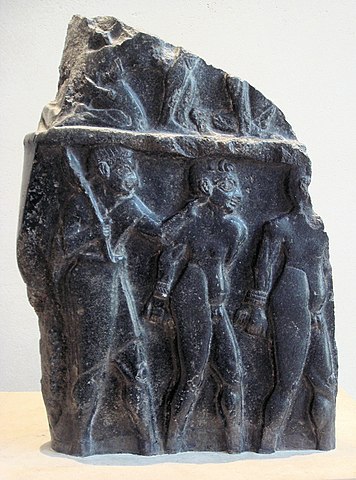The Military Campaigns of Sargon of Akkad: Conquests and Expansion
1. Rise to Power:
- Context: Sargon of Akkad, a prominent ruler in Mesopotamia, emerged around 2334 BCE. His rise marked the establishment of the Akkadian Empire, one of the first empires in human history.

2. Unification of City-States:
- Strategic Vision: Sargon’s early military campaigns aimed at unifying the city-states of Sumer under a centralized authority. His strategic vision sought to create a powerful and cohesive empire.
3. Conquest of Sumerian Cities:
- Military Prowess: Sargon’s military campaigns were characterized by the conquest of major Sumerian cities, including Kish, Ur, and Uruk. The Akkadian military’s effectiveness played a crucial role in these conquests.
4. Expansion into Elam:
- Geopolitical Reach: Sargon expanded his empire beyond Sumer, incorporating territories in Elam. This expansion demonstrated both military strength and a geopolitical strategy to control key regions.
5. Conquest of Mari:
- Strategic Positioning: Sargon’s conquest of Mari, located along the Euphrates River, was strategically significant. It provided control over important trade routes and further solidified Akkadian dominance.
6. Military Innovations:
- Tactical Advancements: Sargon is credited with military innovations, including the effective use of infantry and siege warfare. His military strategies contributed to the success of the Akkadian Empire’s conquests.
7. Rule Over Sumer and Akkad:
- Centralized Authority: Sargon’s conquests resulted in the establishment of a centralized authority that ruled over both Sumer and Akkad. This political unification laid the foundation for the Akkadian Empire’s administrative structure.
8. Administration and Governance:
- Organizational Skills: Sargon’s ability to govern and administer a vast empire showcased organizational skills. The empire implemented systems to manage resources, territories, and diverse populations.
9. Cultural Integration:
- Blend of Cultures: Sargon’s reign saw a blending of Sumerian and Akkadian cultures. This cultural integration was facilitated through administrative policies and contributed to the cohesion of the empire.
Sargon of Akkad’s military campaigns and imperial rule were instrumental in shaping the course of Mesopotamian history. His conquests, administrative innovations, and cultural policies laid the groundwork for subsequent empires, leaving an enduring legacy that extended far beyond his lifetime.











